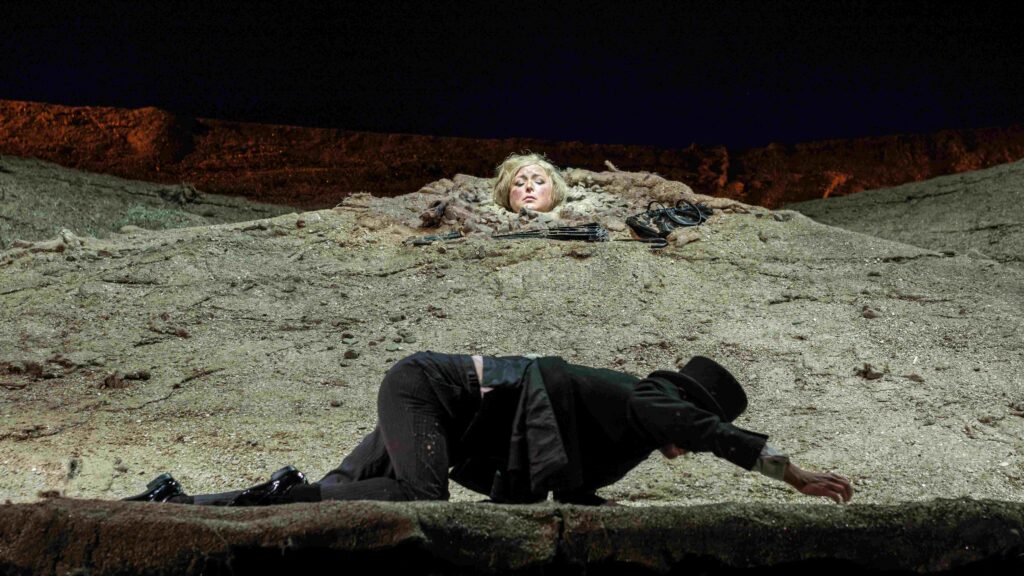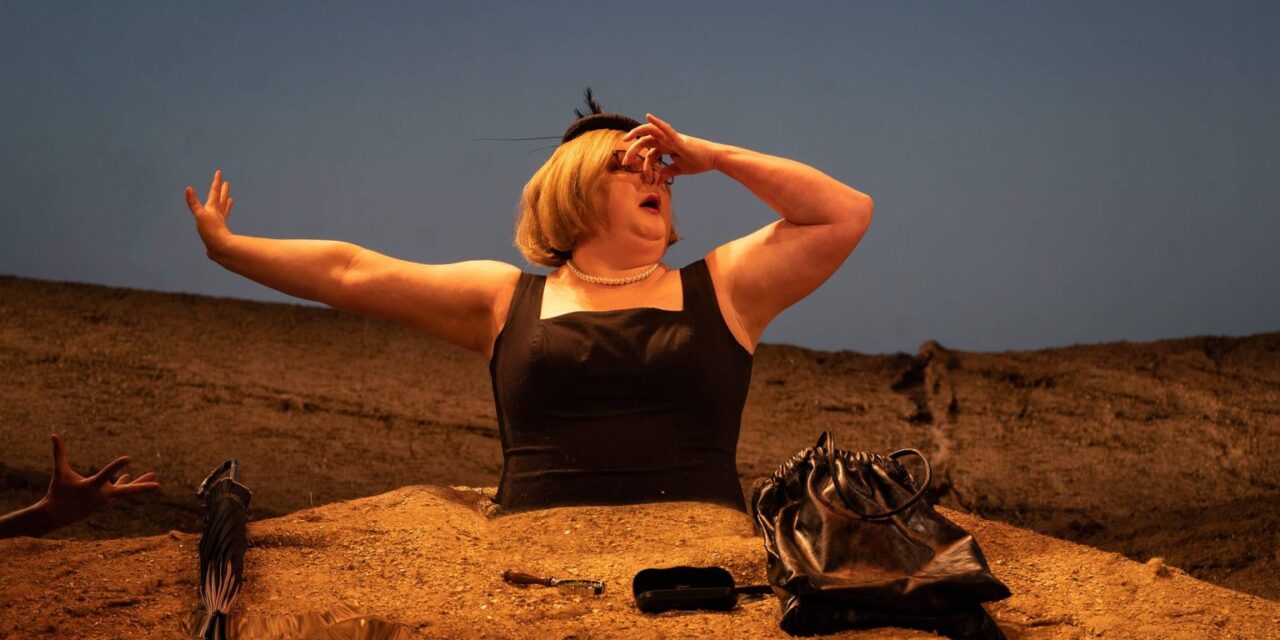
28 June – 1 July
Let us begin by taking it as given that any play by Samuel Beckett with ‘happy’ in the title is a deliberate misnomer. Yet despite the typical dour and saturnine absurdism, there was something uplifting in the futile optimism of Winnie, as played by Siobhán McSweeney, an optimism that was comforting in being more bloody-minded than naive.
Those unfamiliar with Happy Days might be more familiar with Beckett’s more famous works, Waiting for Godot and Endgame, possibly knowing him as a love-him-or-hate-him absurdist playwright with eschatological visions, specialising in long difficult plays with few characters, and limited stage sets. Happy Days follows the same tradition. Indeed, in some ways it is even more sparse and gloomy, with only two characters, one set, and virtually zero movement on stage due to the main character, Winnie, being buried up to her waist in the first act and up to her neck in the second. Forty-five minutes of nothing but a talking head on stage is testing even for the most avid theatregoer. However, unlike Godot and Endgame, Happy Days is centred around a female lead. Indeed, except for a minor cameo by Howard Teale as Willie, this is a one-woman show. Or rather, this is a one-woman acting masterclass by McSweeney.
While perhaps not a household name, she became a well-recognised face on our television screens in recent years from her role as Sister Michael in the hit Irish comedy Derry Girls. Anyone who has seen her on the small screen can be assured that her natural humorous charm, dry expressions, and comic timing are replicated on the theatrical stage, lending much needed light relief to a fairly joyless and intense scenario.
Nor did she over-egg the persistent sexual innuendo in the script – no nudge-nudge, wink-wink, say no more (thankfully). Everything from humour to sorrow to love to fear was beautifully judged, nuanced, paced, and her diction was perfectly projected. This was the first time I have heard Beckett pronounced in an Irish accent and McSweeney’s wonderful lilt seemed to give the Irishman’s words a little extra authenticity. McSweeney held me and the audience in a trance-like state, pretty much on her own, for over two hours. Some feat!
Credit must also be given to Landmark Productions director Caitríona McLaughlin, who concentrated on presenting Happy Days straight, true to the original vision and without putting too firm of a production stamp on it. The lighting, set and the props drew very little attention away from the acting. There were no frills, just quality, exactly as Beckett would have wanted. McLaughlin and McSweeney both clearly understand Beckett and the play very well, and for the members of the audience who share that understanding, they delivered a memorable night of exquisitely bleak and gorgeously glum theatre.
★★★★☆ Robert Gainer 30 June 2023


